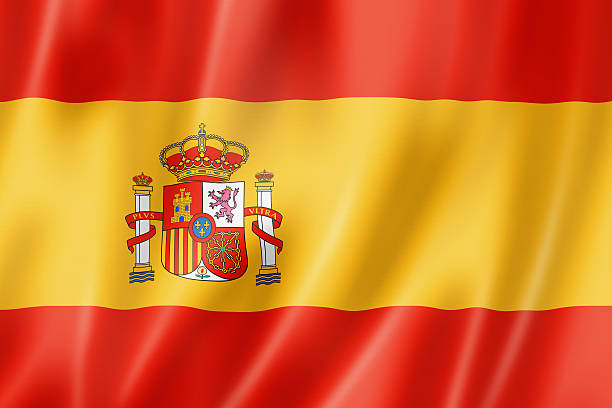Constitution Day in Spain (Día de la Constitución)- December 6th

Constitution Day in Spain: Celebrating Democracy and Unity
On December 6th, Spain celebrates Constitution Day (Día de la Constitución), a significant national holiday that commemorates the 1978 Spanish Constitution, a landmark document that marked the beginning of Spain’s transition to democracy. This day honors the establishment of a modern parliamentary democracy, replacing the dictatorship of Francisco Franco with a constitutional monarchy and a system based on the rule of law and individual freedoms.
The History Behind Constitution Day
The 1978 Spanish Constitution was a product of Spain’s Transición—a period of political and social change following the death of dictator Francisco Franco in 1975. For nearly 40 years, Spain was under authoritarian rule, during which many civil liberties were restricted. Following Franco’s passing, Spain entered a delicate phase of transition, where political leaders from various factions worked together to create a new democratic framework for the country.
The drafting of the constitution was an essential part of this transition, representing a collective desire for political freedom, regional autonomy, and national unity. After months of negotiation, Spain’s new constitution was approved by the Spanish Cortes Generales (parliament) on October 31, 1978, and a nationwide referendum was held on December 6, 1978, where nearly 88% of voters supported the new democratic charter.
The 1978 Constitution laid the foundation for Spain’s democracy by guaranteeing fundamental rights such as freedom of speech, assembly, and religion, as well as establishing a decentralized system that recognizes regional autonomy. It also formalized Spain as a constitutional monarchy, with King Juan Carlos I as a symbolic head of state, while political power rests with elected officials.
The Significance of Constitution Day
Constitution Day is more than just a celebration of a legal document. It is a day to reflect on Spain’s journey from dictatorship to democracy and to appreciate the rights and freedoms guaranteed by the constitution. It marks the moment Spain transitioned from an oppressive regime to a democratic society, embracing pluralism, tolerance, and inclusion.
This day also underscores Spain’s commitment to unity within its diversity. The 1978 Constitution recognizes Spain’s 17 autonomous communities, each with its own distinctive culture and language, yet it ensures that all are united under a common national framework. Constitution Day serves as a reminder of the importance of dialogue and cooperation among different regions, languages, and cultures that make up the country.
How Constitution Day is Celebrated
Constitution Day is a public holiday in Spain, and while it is a day of reflection, it is also celebrated with various events throughout the country. Here’s how this important day is typically observed:
- Official Ceremonies and Parades
The Spanish government marks Constitution Day with official ceremonies, including a military parade in Madrid, where the King and other officials attend. The parade typically includes military units, marching bands, and displays of Spain’s military capabilities, symbolizing the country’s stability and commitment to national defense. The King also delivers an annual speech emphasizing the importance of Spain’s democracy and unity. - Educational Events and Discussions
In schools and universities, Constitution Day is an opportunity for students to learn about Spain’s history and the democratic principles enshrined in the constitution. Public forums, debates, and discussions are held throughout the country, focusing on constitutional rights, the rule of law, and Spain’s political evolution. - Cultural Activities
Many Spanish cities organize cultural activities, such as concerts, exhibitions, and theater performances, celebrating Spanish heritage and values. These events often highlight the cultural diversity within Spain and the shared ideals of democracy and freedom. - Reflecting on the Constitution’s Impact
On Constitution Day, many citizens and organizations take time to reflect on how the constitution has shaped Spain’s political landscape and the daily lives of its citizens. It is a day to consider the ongoing importance of upholding democratic values, human rights, and social justice.
The Legacy of the 1978 Constitution
The 1978 Spanish Constitution remains one of the most important documents in the country’s history. It has served as a foundation for Spain’s transformation into a modern democratic state, guaranteeing civil liberties, gender equality, and regional autonomy. It also provided the legal basis for Spain’s integration into the European Union and its subsequent role as a key player on the global stage.
However, the constitution is also subject to ongoing debate. Some question whether it should be updated to better address issues such as regional independence movements, economic challenges, and changes in Spanish society. Despite these challenges, the 1978 Constitution continues to be a powerful symbol of Spain’s democratic resilience.
How You Can Participate in Constitution Day
While Constitution Day is an official Spanish holiday, even if you are not in Spain, you can still celebrate and engage with this important occasion:
- Learn about Spain’s History: Use the day to explore the events that led to the drafting of the 1978 Constitution, and understand its significance in shaping modern Spain.
- Celebrate Spanish Culture: Whether by trying Spanish cuisine, listening to Spanish music, or watching a documentary about Spain’s democratic transition, immerse yourself in Spanish culture and history.
- Support Democracy: Constitution Day serves as a reminder of the value of democracy and human rights. Consider supporting organizations that promote democratic values or participate in local discussions about the importance of these rights.
Constitution Day in Spain is not just a national holiday—it is a day to reflect on the remarkable transformation that took place in Spain from dictatorship to democracy. It is a time to honor the principles of democracy, freedom, and unity that are enshrined in the 1978 Constitution, and to recognize the ongoing importance of protecting these values for future generations.
On December 6th, Spaniards celebrate their collective commitment to democracy, while looking ahead to the continued growth and evolution of their country. ¡Viva la Constitución!
